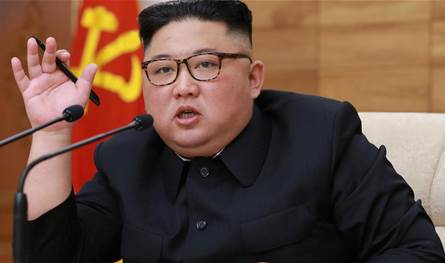
In a speech on Friday evening, Kim affirmed his intention to strengthen his country’s defense capabilities, stressing that “the sovereignty of the state can only be defended and guaranteed by force.”
The North Korean leader said: “Our army must continue to grow into an invincible entity that destroys all threats that approach our self-defense range thanks to its political, military and technical superiority. It must constantly strengthen itself to become elite forces that achieve victory after victory through the strength of morals and discipline.”
Kim praised the “heroic fighting spirit” of the North Korean forces, which he described as a “source of strength” for the Workers’ Party of Korea, pointing to the role of the North Korean forces fighting alongside Russia in the war in Ukraine, in what was considered a rare acknowledgment of direct military support for Moscow.
Kim’s statements came as Pyongyang intensifies the development of its arsenal of ballistic missiles and strategic weapons as part of its five-year defense plan, as it displayed the “Hwasong-20” intercontinental ballistic missile for the first time in the latest military parade.
In a related context, official media reported that the celebration was attended by a number of foreign guests, including Dimitri Medvedev, Vice President of the Russian Security Council, in an additional indication of growing cooperation between Pyongyang and Moscow.
At the conclusion of his speech, Kim affirmed his intention to “continue the struggle against injustice and domination,” in an indirect allusion to the United States, but he refrained from making any direct threats to Washington or Seoul.
Kim said last month that he still has “good memories” of US President Donald Trump, expressing his openness to dialogue with Washington if it abandons its demand for denuclearization.

















